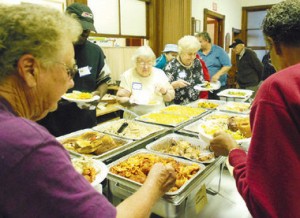
Eaarth by Bill McKibben is definitely a must-read for anyone interested in living through climate change. Focusing on what we need to do as a society and personally to adapt to our new planet, Eaarth, McKibben brings some hope to an otherwise hopeless subject. Just like any probable solution to adapting to a changing world, McKibben prescribes a paradigm shift, this time a shift from a centralized, ever-expanding society to more decentralized societies aiming to sustain community, not expand it. My sister and I were “raised by a village”. Growing up in a small town, the daughter of a folklorist and homebody, neighbors have always been an important part of my life. We are just as comfortable in our home as we are in the local library or other places we volunteer at. We barely ever get through a spontaneous baking job without borrowing a cup of sugar from one neighbor or a teaspoon of vanilla from another. Thus, McKibben’s prescription of more community-based efforts like micro-grids for power and local food initiatives resonated with me but even more so, the idea that we will need to rely on our neighbors for help as we continue to face climate changes hit close to home.
Already with Hurricane Sandy and losing power for 10-15 days in town, being neighborly became a requirement. Volunteering at the Community Kitchen in town, where there was no lights but still hot water and a working stove, we cooked everything that started to defrost from the freezer and must have fed the whole town at least twice. Everyone came out for the hot meal, not just the usual crowd. And those who did not show up, we brought chili to the charging station at City Hall. Just as McKibben claims, when we were hit with a disaster debatably a symptom of climate change, the whole town became neighborly as we could no longer rely on central power or central authorities to come to our rescue. The bottom line: people like to be neighborly once they give it a chance. When push comes to shove, they will reach out to help and get help not just from the poor half way across the world but those right across the street.

Keziah – Thank you for putting words to our mission, and thank you for making change for the better. xoxo ~pam
When storms, such as Sandy, happen in my town it also creates an increased sense of the community aspect. Severe storms seem to be occurring more frequently and it seems as if once a year now our local high school gym has to be opened up for food and shelter.